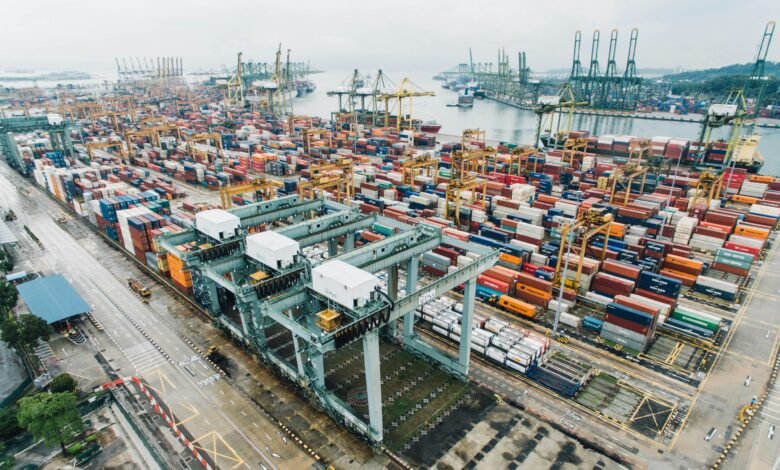
Welcome aboard, fellow eco-warriors! Today, we’re setting sail on a journey to explore the impact of storing cargo on our precious planet. As global trade continues to thrive, so does the need for sustainable solutions in storing and managing goods. Join me as we delve into the world of cargo storage and discover how small changes can make a big difference in protecting our environment. Let’s navigate the sea of traditional practices towards a greener future together!
Environmental concerns with traditional cargo storage methods
Traditional cargo storage methods have long been a staple in the logistics industry but come with environmental drawbacks. One primary concern is using non-renewable energy sources to power storage facilities and vehicles. The emissions from these operations contribute to air pollution and climate change.
Moreover, many traditional storage solutions involve single-use packaging materials in landfills, further exacerbating waste management issues. Chemical spills or leaks from improper cargo handling can contaminate soil and water sources, posing risks to ecosystems and human health.
Large-scale warehouses rely heavily on artificial lighting and temperature control systems, consuming excessive electricity. This high energy demand drives up operational costs and increases carbon footprints significantly.
Traditional cargo storage practices have a significant impact on the environment. As awareness grows about these concerns, the industry is shifting towards more sustainable and eco-friendly alternatives to mitigate these detrimental effects.
The rise of sustainable and eco-friendly storage solutions
As the world becomes more environmentally conscious, the logistics industry is also evolving to embrace sustainable practices in cargo storage. Traditional goods storage methods often involve high energy consumption and emissions, contributing to environmental degradation. In response, innovative solutions are emerging that prioritize eco-friendly approaches.
Companies are now turning towards sustainable storage options, such as utilizing renewable energy sources like solar power for their warehouses. Implementing advanced insulation materials helps regulate temperature without excessive energy use, reducing carbon footprint significantly. Additionally, adopting efficient space utilization techniques minimizes wastage and promotes a greener supply chain.
These eco-friendly storage solutions benefit the environment and offer cost savings and an improved brand reputation for businesses. By investing in sustainable practices, companies can reduce their impact on the planet while enhancing operational efficiency and competitiveness in the market.
Benefits of using sustainable cargo storage
As the world becomes more conscious of environmental impact, the benefits of using sustainable cargo storage solutions are gaining recognition. By opting for eco-friendly methods such as utilizing renewable energy sources or implementing green technologies, companies can significantly reduce their carbon footprint and contribute to a healthier planet.
Sustainable storage options help protect the environment and enhance operational efficiency. With innovations like intelligent warehouse designs and energy-efficient systems, businesses can streamline their processes and cut costs in the long run. Additionally, these practices often improve brand reputation and customer loyalty as consumers increasingly prioritize sustainability when purchasing.
Embracing sustainable cargo storage is a win-win situation for companies and the environment. It paves the way for a greener future while offering practical advantages that drive business success in a rapidly evolving market landscape.
Case studies of companies implementing eco-friendly storage methods
Let’s look at some inspiring case studies of companies leading the way in implementing eco-friendly storage methods.
Company A, a global logistics firm, has adopted solar-powered warehouses to reduce its carbon footprint and reliance on traditional energy sources. By harnessing renewable energy, they have significantly decreased their environmental impact while cutting operational costs.
Company B, a sustainable fashion brand, utilizes innovative packaging materials from recycled and biodegradable resources to store and transport its products. This aligns with their brand values and sets an example for others in the industry to prioritize sustainability throughout the supply chain.
Company C, a tech startup, has implemented intelligent inventory management systems that optimize space utilization and minimize waste. Through data analytics and automation, they have improved efficiency while reducing excess storage needs, contributing to a greener future.
These examples showcase how businesses across various sectors can make meaningful strides towards eco-friendly storage practices.
How individuals can make a difference in reducing environmental impact when storing cargo
Individuals play a crucial role in driving positive change when it comes to reducing the environmental impact of storing cargo. A straightforward way to make a difference is by opting for reusable and eco-friendly packaging materials when packing your items for storage. By choosing biodegradable alternatives, you can help minimize waste and pollution.
Another impactful step is prioritizing energy-efficient storage solutions, such as utilizing natural lighting or investing in solar-powered facilities. Being mindful of how you organize and store your belongings can also reduce unnecessary waste and maximize space efficiency.
Additionally, consider supporting companies that prioritize sustainability in their storage practices. You promote a more eco-conscious industry by consciously selecting environmentally responsible businesses for your storage needs. Small changes on an individual level can collectively lead to significant environmental benefits in the long run.
Conclusion
In today’s world, where environmental concerns are at the forefront of global discussions, it is essential to recognize the impact of storing cargo on our planet. Traditional storage methods have long been associated with harmful environmental effects, but there is a growing shift towards sustainable and eco-friendly solutions.
By embracing sustainable cargo storage practices, businesses can reduce their carbon footprint and benefit from cost savings and improved efficiency. Companies like XYZ and ABC have already set examples by implementing eco-friendly storage methods prioritizing environmental sustainability.
Individuals, too, can play a significant role in reducing the environmental impact of storing cargo. Simple actions such as opting for reusable packaging materials, consolidating shipments to minimize transportation emissions, and choosing energy-efficient storage facilities can all contribute to positive change.
As we move towards a more environmentally conscious future, businesses and individuals alike must consider the importance of sustainable practices when storing cargo. By making small changes in how we approach cargo storage, we can collectively work towards creating a greener and more sustainable world for generations to come. Let us harness the potential for positive change by adopting eco-friendly solutions in every aspect of our lives – including how we store our precious cargo.



